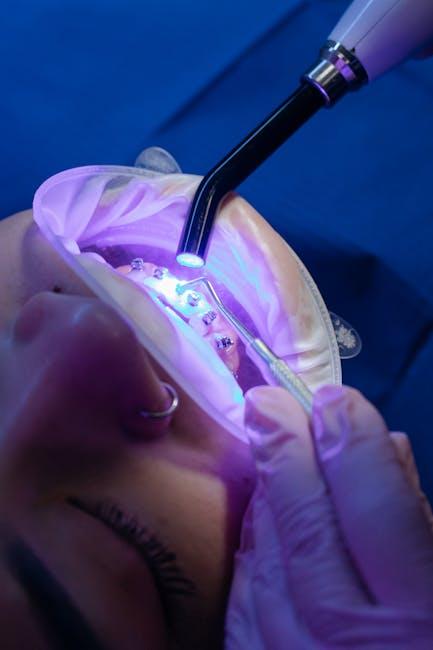
What is Causing Dissatisfaction in the Dental Profession? – Dentistry.co.uk
The dental profession is widely respected and valued for its crucial role in healthcare. However, recent trends reveal a growing wave of dissatisfaction among dental professionals across the UK and beyond. Understanding the root causes of this dissatisfaction is essential for fostering a supportive work environment, enhancing career satisfaction, and ultimately improving patient care.
Introduction: A Changing Landscape for Dental Professionals
Many dentists, hygienists, and dental nurses are reporting increasing job stress, frustration, and burnout. Whether working in the NHS, private practice, or mixed environments, dental teams face mounting pressures that impact their motivation and overall job satisfaction. This article delves deep into the factors causing dissatisfaction in the dental profession and explores potential solutions to these challenges.
Main Causes of Dissatisfaction in Dentistry
1. Pressure and Limitations within NHS Dentistry
The National Health Service (NHS) remains a significant employer of dental professionals in the UK. Yet, many practitioners highlight that NHS contracts and frameworks contribute greatly to dissatisfaction.
- Target-driven contracts: The Units of Dental Activity (UDA) system often forces dentists to meet targets rather than focusing on patient-centred care.
- Financial constraints: Reimbursement rates can feel inadequate, leading to financial pressures and reduced profitability.
- Limited time per patient: High patient volumes restrict appointment lengths, reducing quality of care and dentist-patient rapport.
2. Increased Workload and Stress Levels
Many dentists report unsustainable workloads, which contribute to high stress and burnout:
- Extended working hours without adequate breaks.
- Managing complex patient needs with insufficient support staff.
- Pressure to balance clinical work with administrative tasks.
3. Career Progression and Professional Development Challenges
Lack of structured and accessible career advancement opportunities can lead to stagnation or frustration, especially among younger dental professionals:
- Limited access to specialist training and continuing professional development (CPD).
- Uncertainty about long-term career prospects in the evolving dental landscape.
4. Impact of Regulatory and Administrative Burdens
Increasing paperwork, compliance standards, and regulatory scrutiny consume valuable time and add pressure:
- Complexity of General Dental Council (GDC) requirements and audits.
- Time-consuming record-keeping and governance tasks.
5. Work-Life Balance Difficulties
Balancing professional commitments with personal life poses a significant challenge, especially in practices struggling to meet demand or maintain staffing levels.
- Long hours and weekend shifts.
- Difficulty disconnecting from work-related stress outside of work hours.
Additional Contributing Factors
| Factor | Description | Impact on Job Satisfaction |
|---|---|---|
| Technology Challenges | Rapid tech advancements require ongoing learning | May cause frustration if support insufficient |
| Patient Expectations | Higher demands for cosmetic and immediate care | Increases pressure on treatment planning |
| Staffing Shortages | Difficulty recruiting and retaining dental nurses | Leads to increased workload and stress |
| COVID-19 Fallout | Backlogs and safety protocols complicate care delivery | Contributes to burnout and dissatisfaction |
Case Study: Dissatisfaction Among NHS Dentists
According to a 2023 survey published by Dentistry.co.uk, over 60% of NHS dentists expressed dissatisfaction with the current NHS contract system. Many cited that the UDA framework restricted their ability to provide comprehensive, patient-focused care and increased financial insecurity. Some dentists reported considering early retirement or shifting to fully private practice to regain autonomy and improve work-life balance.
Practical Tips to Improve Job Satisfaction in Dentistry
1. Advocate for Contract Reform and Fair Compensation
Dental professionals should actively engage with governing bodies and unions to push for contract changes that better reflect the complexities of modern dental care.
2. Prioritize Mental Health and Wellbeing
- Instituting regular breaks during clinical sessions.
- Seeking peer support and professional counselling when needed.
3. Invest in Continuing Professional Development
Staying current with dental innovations and techniques can rekindle passion and open new career pathways.
4. Foster Collaborative Practice Environments
Encouraging team-based approaches reduces individual stress and enhances patient care quality.
5. Manage Patient Expectations
Clear communication about treatment possibilities, costs, and timelines builds trust and reduces pressure.
Benefits of Addressing Dissatisfaction in Dentistry
Improving job satisfaction not only enhances the wellbeing of dental professionals but also translates into better patient outcomes. Clinicians who feel valued and supported are:
- More motivated to provide high-quality care
- Less likely to leave the profession
- Better equipped to manage patient relationships
Conclusion: Towards a Happier, Healthier Dental Profession
While dissatisfaction in the dental profession is a multifaceted issue, awareness and proactive change can help alleviate many challenges. Addressing NHS contract limitations, reducing administrative burdens, supporting career growth, and fostering positive work environments are essential steps forward. By prioritising dental professionals’ wellbeing and job satisfaction, the entire dental community—patients included—stands to benefit.
For ongoing updates and in-depth discussions on dental industry challenges, stay connected with Dentistry.co.uk.


